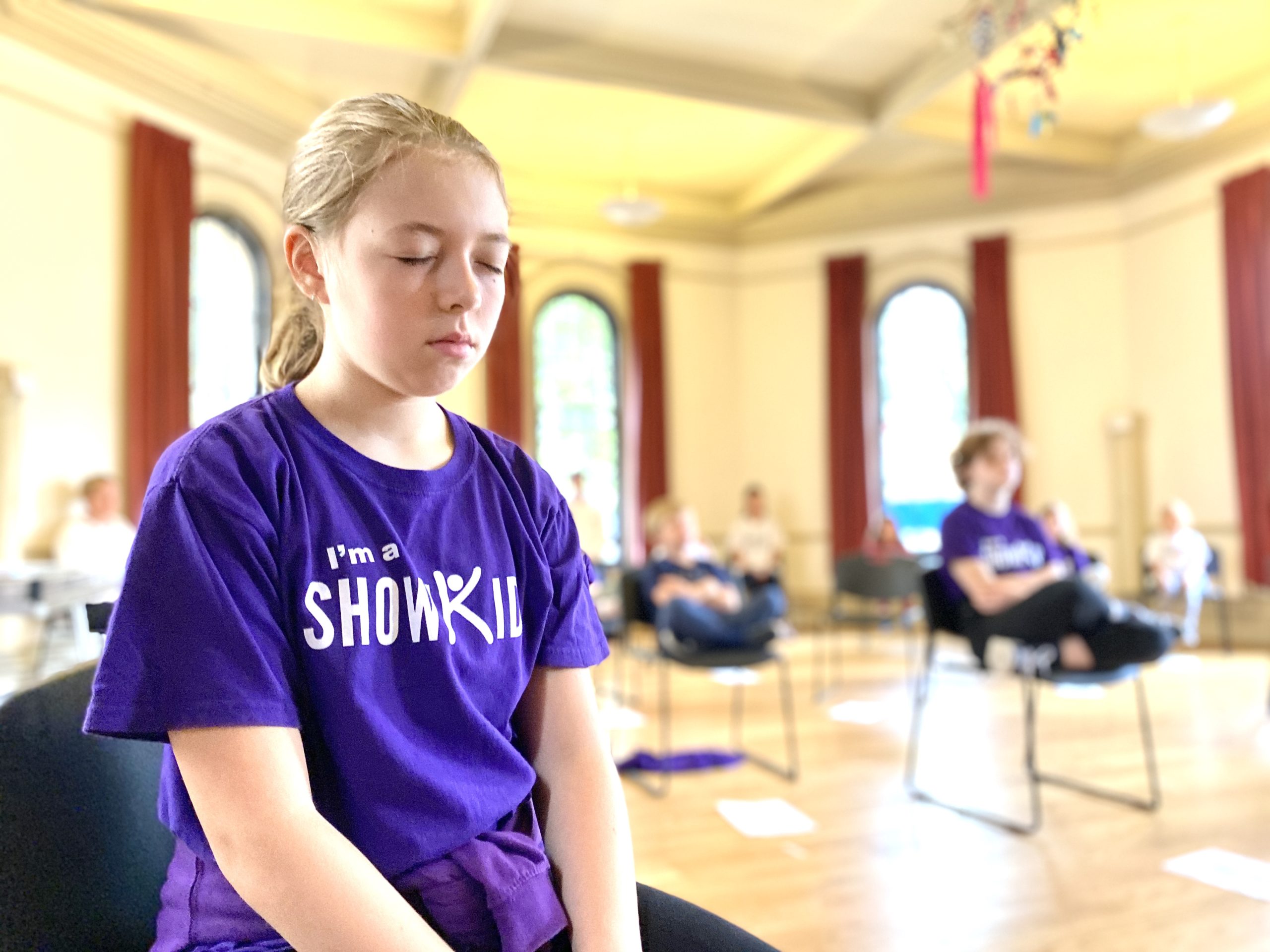
Mindfulness is one of those words that has gone from being the preserve of yoga teachers or psychologists- to one that pops up everywhere! But here at ShowKids, mindfulness has always been an important part of our ethos, and a skill we aim to develop in every workshop. Put simply, mindfulness is a being fully engaged in the present moment – aware of your emotional and physical state – and learning to accept it.
Mindfulness doesn’t eradicate negative emotions; it helps you tune into them so you can recognise unpleasant thoughts and deal with them in a measured way. And it ensures that you connect with, and appreciate, what’s around you.
We live in an increasingly distracting age and since our children can’t remember life B.S.P (before smart phone), you could say it’s even more important for them to learn how to be ‘in the moment’.
Here are five other reasons why we think mindfulness for kids is so important:
1. A head start
Mindfulness is beneficial at every developmental stage – from toddler into old age – and is shown to decrease anxiety and increase happiness. But the earlier you learn, the better- if only it was on the curriculum in the 90s! Mindfulness can often feel like a rewiring of the brain – and it kind of is. But learn the techniques at an early age, when the brain is still developing, and it’s more likely to come naturally later in life.
2. Life-long resilience and natural positivity
Mindfulness can help children to understand the difference between their inner and outer experiences. Thoughts can be upsetting and can even manifest into a physical feeling, but if children are taught to recognise their thoughts as ‘just thoughts’ they are better equipped to deal with them. Being told to be positive no matter what is counter-productive because it’s not possible. In fact, children who can identify a negative feeling are more likely to maintain positivity. Which leads me to…
3. A confident mind-set
A healthy level of self-esteem comes from an ability to avoid judging ourselves too harshly. Mindfulness helps children to have less attachment to their feelings, and to just observe them. If they feel nervous, instead of wallowing in that feeling and increasing it, they can acknowledge it, maybe ask them themselves why they feel it, and ultimately move beyond it. True confidence doesn’t come from always believing you will do it, but that you can try your best.
4. Calm and concentration
One of the main mindfulness techniques used in our workshops is, quite simply, breathing. Children who learn breath awareness and control have learnt an effective way to self-calm and focus. We all find ourselves distracted from a task by random thoughts that pop into our mind – mindfulness can’t stop them coming but it can teach you to rise above them. Better still, practise makes perfect, and the more children connect with the moment, the more their brains learn to be ‘indistractable’ – also key to delivering a great performance on stage! Mindfulness has even been shown to improve memory.
5. Empathy and patience with others
It’s a well-known phrase – you’ll never learn to love others if you can’t love yourself. We know that mindfulness fosters a healthy self-awareness but an important side-effect of this is learning that others have complicated thoughts too – and that’s called empathy.
At ShowKids, we believe in the importance of mindfulness for children- and in life skill development as much as the power of performance.
Click here to book your child in for a free taster workshop and see what mindfulness through the Performing Arts can do for your child.